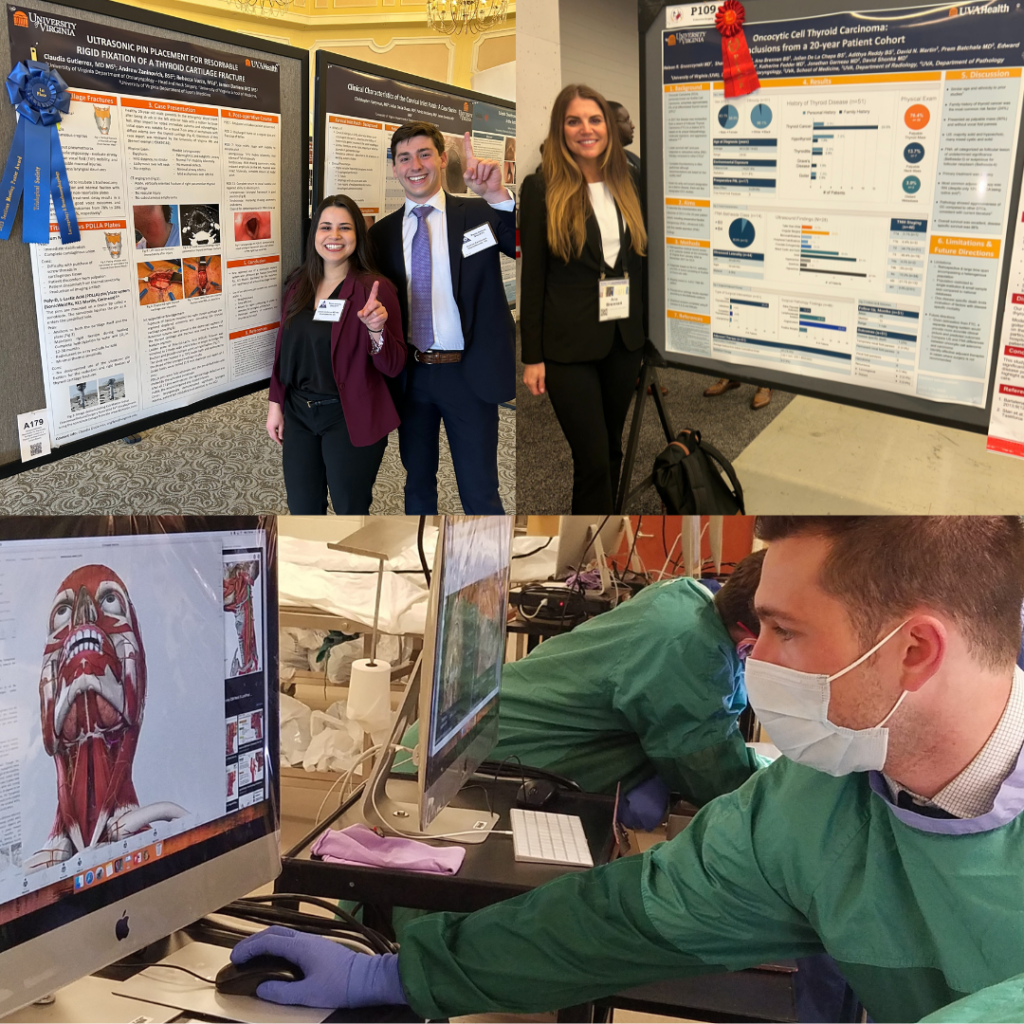Medical Students

Interested in ENT?
Join the UVA ENT interest group! The group is run entirely by current medical students and is a great way to meet fellow students with an ENT interest. Click the button for more information and who to contact.
Otolaryngology is the oldest medical specialty in the United States. Otolaryngologists are physicians trained in the medical and surgical management and treatment of patients with diseases and disorders of the ear, nose, throat (ENT), and related structures of the head and neck. They are commonly referred to as ENT physicians.
Interested in ENT?
Join the UVA ENT interest group! The group is run entirely by current medical students and is a great way to meet fellow students with an ENT interest. Click the button for more information and who to contact.
Specialties
There are six subspecialties within Otolaryngology : Head and Neck Oncology, Pediatric Otolaryngology, Rhinology, Laryngology, Otology, and Facial Plastic & Reconstructive Surgery. At the University of Virginia, our clinical service lines are grouped into five main teams (listed below with associated surgeons).
- Head & Neck Oncology: Drs. Shonka, Fedder, Garneau, and Dowling
- Pediatric Otolaryngology: Drs. Brand and Greenwell
- Facial Plastic & Reconstructive Surgery AND Laryngology: Drs. Park, Oyer, McGarey and Daniero.
- Otology AND Rhinology: Drs. Hashisaki, Kesser, Payne, and Mattos.
- General Otolaryngology (private practice): Drs. Mason and Landes.
Teams
You will have the option of picking two teams to rotate with (one week with each). You will receive an e-mail the week before your rotation informing you of your teams. You are expected at rounds at 6:30 AM in the 6-West day room every day except for Wednesday (7:00 AM Grand Rounds in the Riggs Auditorium). You will receive further instructions on Monday morning from the chief resident that you are working with. You will be expected to round with the team and attend all clinics and operations performed by the team.
Operative vs. Clinic
Each service divides its time between the operating room and clinic. The Otolaryngology operative experience typically allows for significant medical student participation (except microsurgery cases where you will be observing). The Otolaryngology clinic experience will expose you to both basic Otolaryngologic problems and esoteric tertiary referrals. Most students seem to learn the most by shadowing the resident or attending they are with (ask at the beginning of each clinic). Your patient responsibility in clinic will typically be less than that on your core rotations. Learn as much as you can and try to acquire a good head and neck exam technique.
Click here to complete a survey if you are interested in participating in research
